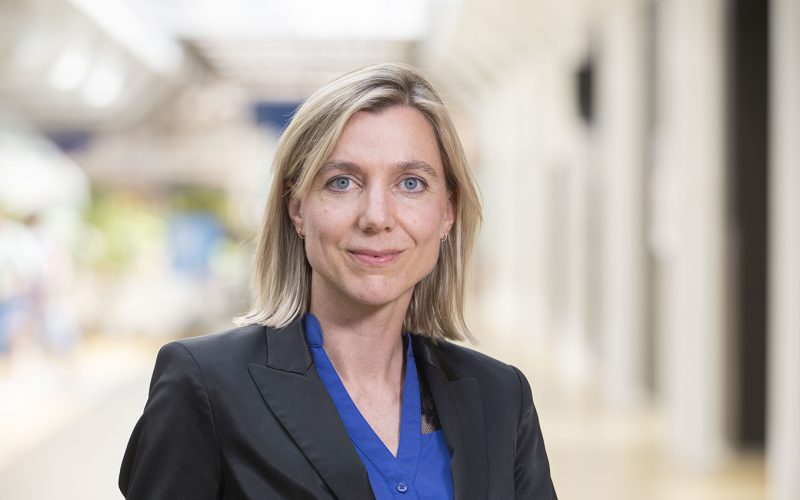Cardiologist Linda van Laake has been appointed professor of “Advanced Heart Failure” at the Faculty of Medicine of Utrecht University effective July 15, 2024. The new professor will combine clinical and translational research with the goal of reducing the burden of heart failure. She focuses on developing new therapies for patients with ‘advanced heart failure’ and improving the application of drugs and interventions.
Linda van Laake ‘s mission is to reduce the burden of heart failure in the coming years. “My clinical expertise is advanced heart failure,” she explains. “It involves patients with progressive deterioration, repeated admissions for heart failure and poor quality of life with severe impairment that persists despite maximum standard heart failure treatment. I provide both a medico-technical and holistic view of the situation of patients with advanced heart failure and assess possible additional heart failure therapies, including mechanical circulatory support or heart transplantation. I supervise the multidisciplinary treatment process and follow patients long-term. This is a niche specialty that few cardiologists practice. It offers me the unique opportunity to study the pathophysiology of advanced heart failure and conduct translational research.”
In her new role, Linda van Laake will combine clinical and translational research activities. She will focus on developing new therapies for patients with advanced heart failure and improving the application of drugs and mechanical interventions. “While I work on clinical problems I encounter in my practice, my team creates a tremendous amount of fundamental knowledge that is valuable to many. I believe in the cross-fertilization between curiosity-driven science and clinical practice. In my team, we strive to understand the pathophysiology that leads to advanced heart failure and to unravel the mechanisms that determine outcomes.”
Over the next five years, the new professor will focus on a clinical research program on advanced heart failure and mechanical circulatory support, with a focus on improving long-term support. “This involves support heart, LVAD, total artificial heart and implementation of technical innovations for heart transplantation. Evidence from clinical trials is scarce in this area and needs to be expanded. I will integrate findings and developments from the laboratory, for example regenerative therapy, into clinical programs and studies. By regenerative medicine, for example, you can think of a heart patch, cultured heart tissue, on failing hearts to strengthen heart muscle strength.”
Expanding the current translational research program into advanced heart failure is the next step. Understanding the cardiac pathophysiology that leads to and follows advanced heart failure is needed to guide the development of new therapies, such as gene therapy and innovative conservation methods for heart transplantation. “This program will benefit from advanced in vitro models of heart failure available through material derived from patients. As such, it is critical to further strengthen and improve opportunities for biobanking heart material.”
For Van Laake, it is clear that the clinical and translational aspects feed and reinforce each other. Together, they create a platform for innovation in heart failure care. “I strive for better integration of research and care in general and in the advanced heart failure program at UMC Utrecht. I intend to expand UMC Utrecht’s participation in advanced heart failure research networks nationally and internationally, including by applying for European consortium grants. Finally, I see an essential role for more and better education on advanced heart failure.”
The chair strengthens the position of UMC Utrecht as an (inter)national leading center for advanced heart failure. Attention for advanced heart failure is growing and there are more treatment options for patients. “It is a wonderful opportunity to contribute to the development of new therapies for patients with advanced heart failure and promote education in this field. I divide most of my time between clinical care and research, in addition to teaching and management. I can count on a strong clinical team and long-term collaboration in research projects. I look forward to generating new insights together and improving the care of our patients.”
